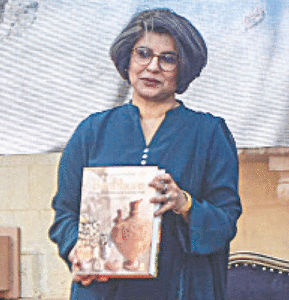HYDERABAD: Water researchers and academics have called for introducing spate irrigation system to harness floods and channelise floodwater from swollen rivers and hill torrents to fields through a network of channels.
They regretted that Sindh had not formulated any policy nor put in place a regulatory system to manage spate water and urged the government to adopt an efficient water management system to meet the needs of a growing population.
They were speaking at a workshop on “spate irrigation: potential and challenges in Sindh” organised on Friday by the Research & Development Foundation (RDF) and US-Pakistan Centre for Advanced Studies in Water (USPCASW) in collaboration with Oxfam Novib and The University of Utah.
The spate irrigation method is the art and science of water management unique to semi-arid environments. It uses seasonal floods to fill water storage canals by diverting floodwater from rivers to fields through a network of primary, secondary and sometimes tertiary channels.
The vice chancellor of Mehran University of Engineering and Technology, Dr Mohammad Aslam Uqaili, said that one should come out from his or her comfort zones in order to become a successful scientist.
The researchers in past used to attain great achievements with their idiosyncratic behaviour and took abnormalities as research opportunities, hence most of the successful scientists in the world were known among people as abnormal persons because they did work for their desired fields beyond normal limits, he said.
He said that considering depleting water resources this precious commodity needed to be conserved and properly utilised for irrigation in order to get required production.
He said that water sector in the country needed researchers, who could work in applied research in various water related fields. The USPCASW and MUET were endeavouring for this cause by educating next generation of scientists, engineers and policymakers through innovative academic programmes on water to focus on applied research and solve the country’s contemporary water problems, he said.
He urged the participants of the workshop, especially newly enrolled students of MS, PhD in USPCASW, to engage in water research in its neglected fields like spate irrigation system and other various applications.
He said that per capita water availability was on the decrease in the country and freshwater bodies were not adequate enough to meet needs of a growing population. Students should bring in new ideas for water management and learn from new concepts of integrated water management, he said.
He advised them to engage with community in their respective research fields to provide maximum benefit to society which was the ultimate beneficiary of academic-industrial applied research.
USPCASW Director Dr Bakhshal Khan Lashari expressed concern over the fact that farmers were not able to get required productivity from wheat and other crops and said it was now up to the young researchers to find solutions to the farmers’ issues to get desired production with optimal use of water.
He said that they had had organised the first workshop for newly enrolled students of USPCASW and such workshops and seminars would be held in partnership with different academic institutes and research organisations to benefit students of USPCASW.
RDF head of programmes Ashfaq Soomro said that Pakistan was rapidly becoming a water scarce country and effective management of water resources was the need of the hour while spate irrigation management could play a vital role in flood management and drought mitigation.
He said that students of USPCASW should take spate irrigation as a priority area for research and RDF would provide them internship opportunities in this regard.
Karim Nawaz, Dr Kamran Ansari, Dr Altaf Siyal and Prof Munir Babar delivered lectures on potential and challenges of spate irrigation in Sindh and Pakistan. Karim Nawaz said that spate irrigation was the second largest source of irrigation in Sindh after Indus basin irrigation system which must be managed to improve economic wellbeing of rural communities, which were dependent on hill torrents.
Published in Dawn, September 5th, 2015
On a mobile phone? Get the Dawn Mobile App: Apple Store | Google Play













































Dear visitor, the comments section is undergoing an overhaul and will return soon.